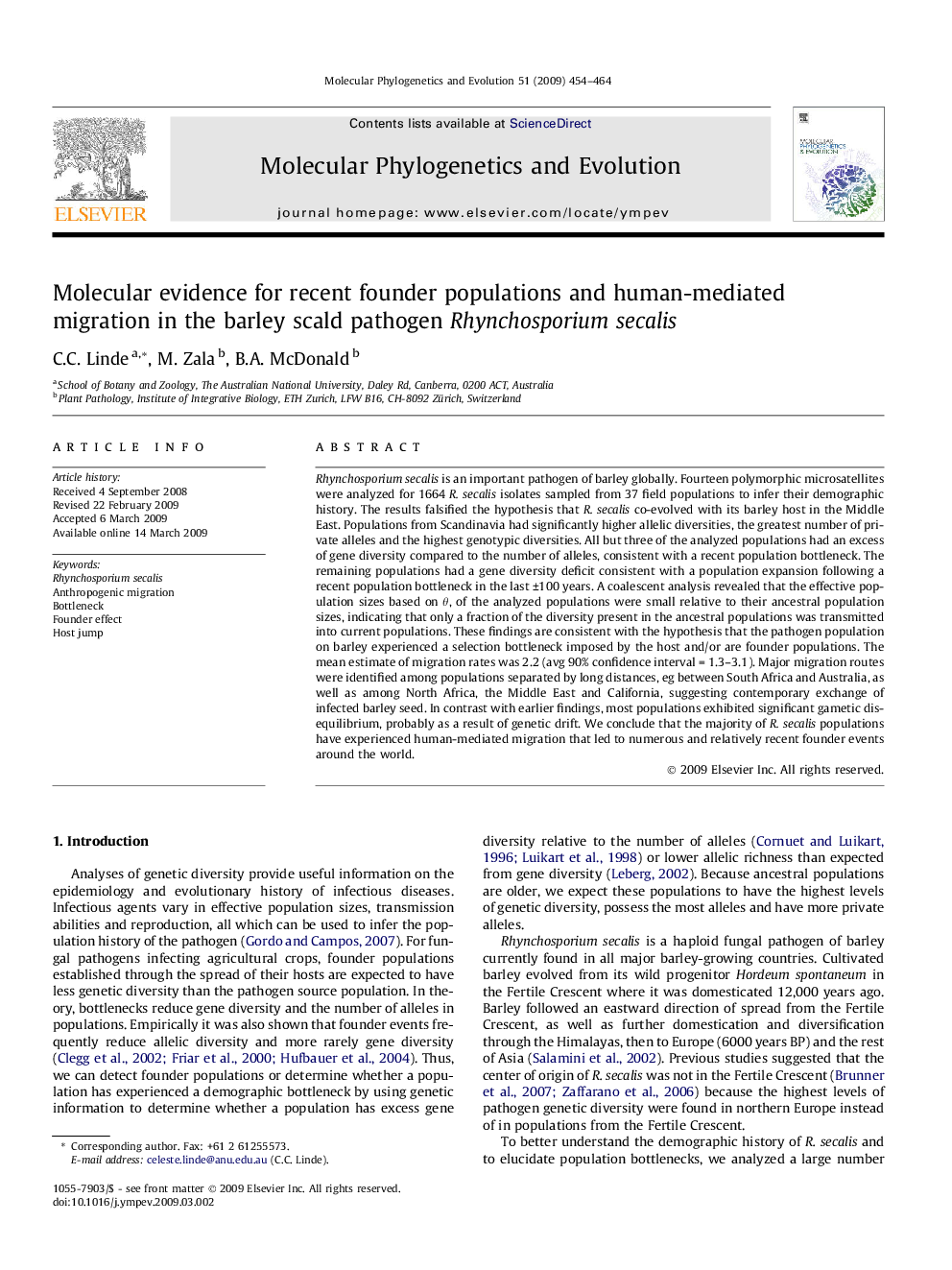| کد مقاله | کد نشریه | سال انتشار | مقاله انگلیسی | نسخه تمام متن |
|---|---|---|---|---|
| 2834700 | 1164320 | 2009 | 11 صفحه PDF | دانلود رایگان |

Rhynchosporium secalis is an important pathogen of barley globally. Fourteen polymorphic microsatellites were analyzed for 1664 R. secalis isolates sampled from 37 field populations to infer their demographic history. The results falsified the hypothesis that R. secalis co-evolved with its barley host in the Middle East. Populations from Scandinavia had significantly higher allelic diversities, the greatest number of private alleles and the highest genotypic diversities. All but three of the analyzed populations had an excess of gene diversity compared to the number of alleles, consistent with a recent population bottleneck. The remaining populations had a gene diversity deficit consistent with a population expansion following a recent population bottleneck in the last ±100 years. A coalescent analysis revealed that the effective population sizes based on θ, of the analyzed populations were small relative to their ancestral population sizes, indicating that only a fraction of the diversity present in the ancestral populations was transmitted into current populations. These findings are consistent with the hypothesis that the pathogen population on barley experienced a selection bottleneck imposed by the host and/or are founder populations. The mean estimate of migration rates was 2.2 (avg 90% confidence interval = 1.3–3.1). Major migration routes were identified among populations separated by long distances, eg between South Africa and Australia, as well as among North Africa, the Middle East and California, suggesting contemporary exchange of infected barley seed. In contrast with earlier findings, most populations exhibited significant gametic disequilibrium, probably as a result of genetic drift. We conclude that the majority of R. secalis populations have experienced human-mediated migration that led to numerous and relatively recent founder events around the world.
Journal: Molecular Phylogenetics and Evolution - Volume 51, Issue 3, June 2009, Pages 454–464